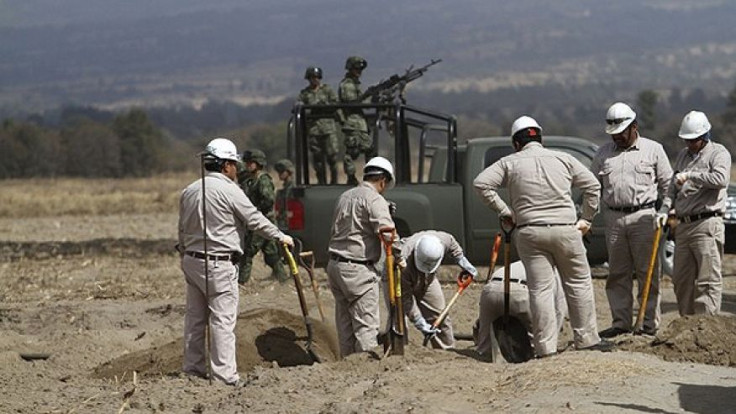To Combat Gasoline Black Market, Mexican Oil Giant Pemex Will Send Unfinished Gasoline Through Its Pipelines

Mexican gasoline thieves have been put on notice. After losing $1.14 billion last year to fuel pipeline thefts, Petróleos Mexicanos (Pemex) says it’s changing the way it refines gasoline and diesel.
“In order to strengthen the security of transporting fuels, Pemex will move through its pipeline unfinished gasoline and diesel, which at this stage are still unfit for use in vehicles and industrial plants,” the state-owned oil company said Tuesday. The plan will be fully implemented by the end of April, Reuters reports.
Now, the process of completing the fuel preparation will take place at localized terminals across the country. The final process involves mixing in additives to the fuels to prevent resin formation that can lead to engine damage, and Pemex is hoping the public will be dissuaded from purchasing fuel outside of the Pemex network of stations.
The oil company urged the public to buy gas only at Pemex stations and to keep receipts “in case of any abnormality.” The company is hoping that the possibly of unfinished fuel in the gasoline and diesel black market will dissuade buyers. The fuel is often sold to companies, sometimes across the border in the U.S., according to a 2011 report in the Wall Street Journal.
In 2011, Pemex sued nine U.S. companies, including six Texas-based firms, for allegedly buying Mexico oil products they knew were stolen. The suit came a year after a joint U.S.-Mexico investigation found that stolen crude was being sold to U.S. refineries.
According to a report Wednesday in Mexico’s Excelsior newspaper, Pemex lost 9.86 million barrels of crude oil, gasoline and diesel last year to fuel thieves. The bulk of the pipeline “milkings” took place in eight Mexican states, led by Tamaulipas, which borders Texas in the country’s northeast. About one in five of the country’s illegal pipeline penetrations took place there last year, a 28 percent jump from 2013.
For years, Mexico has been grappling with criminal gangs that have siphoned fuel from Pemex’s massive pipeline system, but the problem noticeably jumped in the past couple of years as criminal organizations have become increasingly more sophisticated in their tactics, in some cases making their own pipeline extensions. Pemex identified over 3,674 illegal pipeline connections in 2013.
Authorities believe at least some of the criminal organizations are linked to Los Zetas, the murderous drug-trafficking syndicate that operates out of Tamaulipas but has a presence in almost every state that reported a large number of pipeline thefts last year.
© Copyright IBTimes 2024. All rights reserved.












